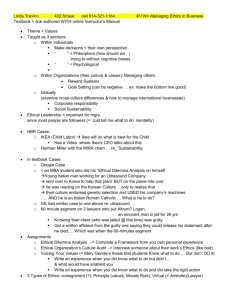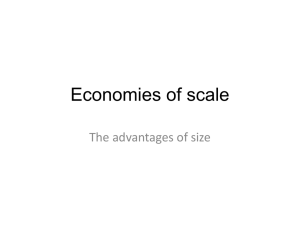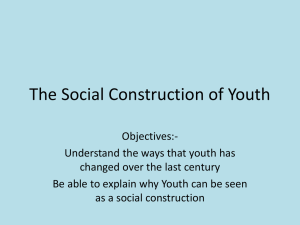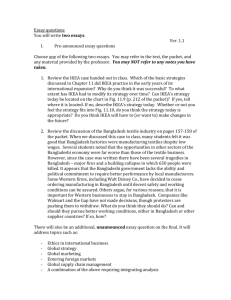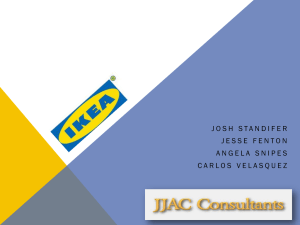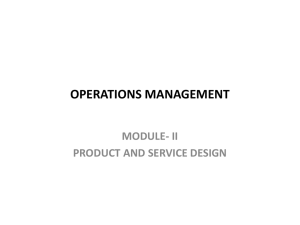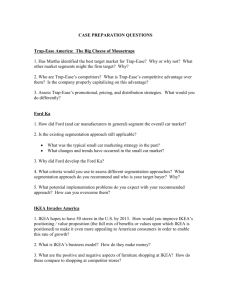File - BSAK Business & Economics
advertisement
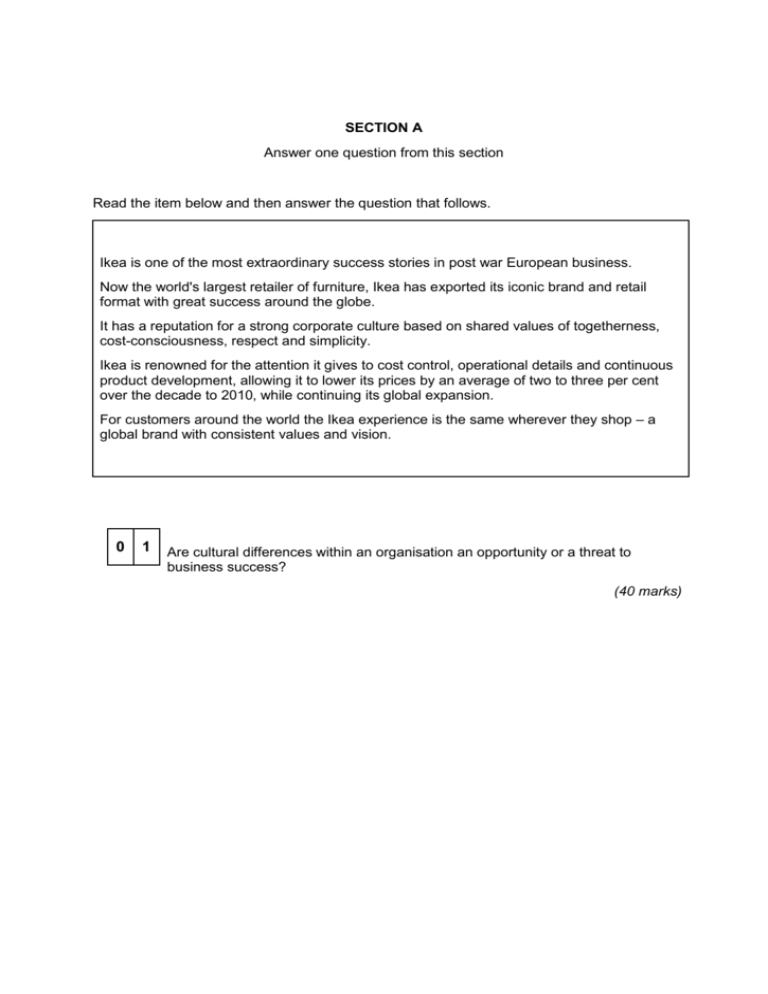
SECTION A Answer one question from this section Read the item below and then answer the question that follows. Ikea is one of the most extraordinary success stories in post war European business. Now the world's largest retailer of furniture, Ikea has exported its iconic brand and retail format with great success around the globe. It has a reputation for a strong corporate culture based on shared values of togetherness, cost-consciousness, respect and simplicity. Ikea is renowned for the attention it gives to cost control, operational details and continuous product development, allowing it to lower its prices by an average of two to three per cent over the decade to 2010, while continuing its global expansion. For customers around the world the Ikea experience is the same wherever they shop – a global brand with consistent values and vision. 0 1 Are cultural differences within an organisation an opportunity or a threat to business success? (40 marks) Outline Answer Possible paragraph points: In support of the question: Counter-arguments to the question: Cultural differences are an opportunity and should be encouraged and nurtured Cultural differences are a potential threat to business success. It is better for a business to build and sustain one, consistent culture. Sub-cultures develop naturally within an organisation (products, functions, divisions, geographies etc) and are common in many highly successful businesses. Sub-cultures potentially dangerous in that, unchecked, they can undertake activities that threaten the reputation of an organisation and even lead to substantial loss. E.g. GSK ($3bn fine in US); BP (culture in Gulf of Mexico); Wal-mart (bribery scandal in Mexico); Mid-Staffs Health Authority. Business is increasingly multicultural – a feature of international expansion, increasing use of takeovers, joint ventures in emerging markets, strategic partnerships etc. Very difficult to instil one culture across such a diversity of activities and might be counterproductive. Effective sub-cultures provide wide range of business benefits. E.g. specialisation (functional) or geographical (insights into what works best in particular countries or regions). HSBC example of how sub-cultures are encouraged to provide local insights, but to support a global brand. Consistency of quality and customer service is a key differentiator as markets become more globalised. A brand experience should be the same wherever customers touch it – e.g. Apple retail stores in major cities; Marriott hotels; McDonald’s, Starbucks. Stimulus application points: [don’t forget – at least two references to the stimulus case] Ikea: strong influence of the founder (Ingvar Kamprad) who still exerts much control over strategy aged 86!. Has become a global band using its distinctive approach to retailing – strong use of symbols, style (“to visit Ikea is to visit Sweden”). Distinctive corporate culture viewed as a core strength. Possible lines of further analysis & evaluation Modern business is becoming increasingly complex – and cultures are evolving in a similar way, driven by increasing cross-border activity and changes to working practices. Makes it much harder to create and nurture one consistent culture based on accepted core values. Sub-cultures are inevitable. They can be a source of strength and opportunity; but if a subculture goes toxic, it can undoubtedly damage an organisation. Use the research article on weebly to explain the various theories about why sub cultures can be both good and bad (don’t worry if you only get a small summary from the paper, you are not expected to understand / use all of it). Then see how any of this report fits with some of the examples below: 1. Sub cultures an opportunity for further growth HSBC example of how sub-cultures are encouraged to provide local insights, but to support a global brand. - Encouraged - opp Google: has deliberately maintained existing culture of acquisitions (e.g. YouTube & Zappos) - Subcultures encouraged - opp 2. Main culture is their very strength, therefore any divergence from this could be damaging Ikea: has developed a consistent culture among employees around the world who “love the values” - Sub cultures developed , Russia, France – threat to culture / reputation 3. Sub cultures can become toxic and more so far away from the original culture that that can destroy the organisation Barclays: impact of powerful sub-culture at investment banking division (came to dominate retail bank) - Can almost bring down whole organisation


